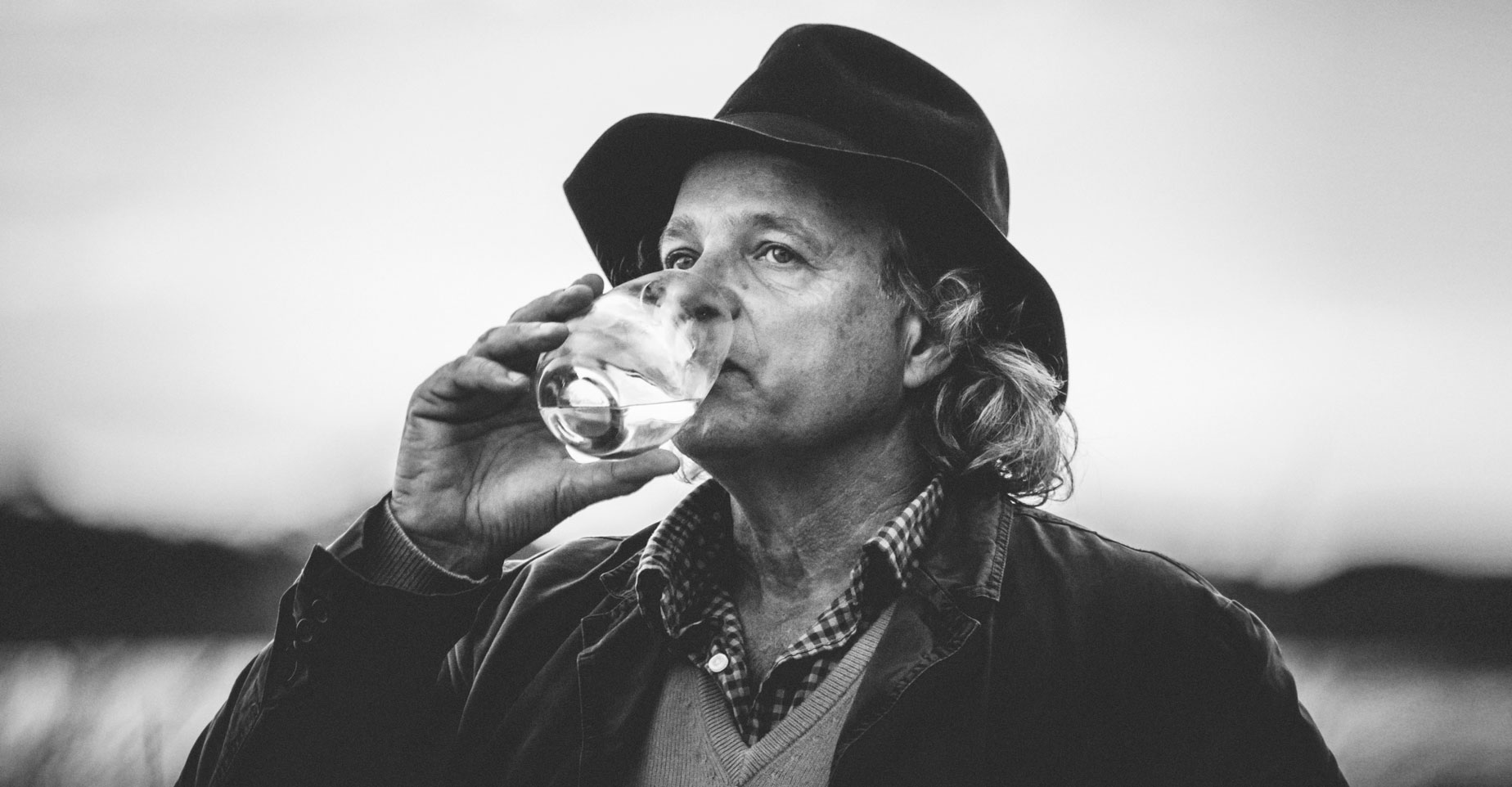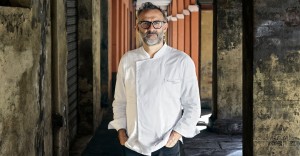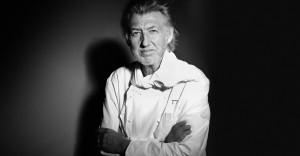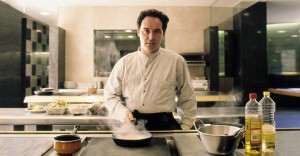Mr. Mallmann, have you ever used a microwave?
Never. I look at them but I’ve never ever tried one, I don’t know how they work. I have nothing against them, it’s just that they feel so unromantic and dangerous to me. They look like a war weapon!
Well that’s not very surprising since you are known for the way you cook meat over an open fire, utilizing methods and ingredients inspired by your Patagonian roots. How did you develop your own language of cooking?
After three or four years working in France with some of the best chefs, I went back to Argentina. I started a very nice career, became quite successful, and at age 40 I won this prize. But when I got that prize, I realized that I hadn’t yet found my own language of cooking. So I got on my knees and gathered all the tools from my childhood – the fires, and the voices of the natives of South America, the voices of all the Gaucho cooking – and started working very hard on that. And that’s how it started. That’s how I came up with these seven fires.
You have said that cooking with fire is a bit like making love. Why is that?
Well, because it has all those different temperatures and possibilities. It’s exactly like that! It can be something very tender and fragile, and it can be brutal like an animal… It’s very related! I lead a very sexual life. It’s the inspiration of my life: lust.
After fire, what is the most important element for your cooking?
Every day is different and I really believe that cooking is something that adapts to how you’re living your day. For me, the romance of cooking is very important. It doesn’t mean that you have to have a very complicated menu. Maybe you have a potato, an onion, and a piece of meat… It’s more related to the weather, to who’s around you. Is it winter, is spring, are you under a tree, beside the stream, are you cooking in the snow? It’s related to the music you hear, the clothes you wear, what you take in your backpack, and so on. For me, that is a very, very important ingredient: the romance we have with life.
What is the best meal you’ve ever eaten?
I don’t know what the best meal is. A pig that I did four days ago, I de-boned it and I put a stick through it and I cooked it very slowly on a fire on a frozen lake in Patagonia. I sat on a little bench and I rotated it for five hours, smoking a cigar and drinking wine and talking with friends… And it was certainly delicious, but every day is the best meal I’ve had because I’m an optimist. I believe in change, I believe in new things. I like that oriental thing that the past is past. The only thing good is what’s happening today and tomorrow. I love the past, but I don’t think much about it.
A lot of your cooking seems to require being outside. Is the indoor kitchen limiting for you?
Well, there’s certainly more dreams in cooking outside, you know? There’s beauty in a fire; there’s beauty in people sitting around a fire. I don’t mind cooking inside, but true happiness for me comes from the wilderness, from being outside and enjoying a desert or a mountain or a frozen lake or a beach.
If you’re in the city for too long, is it overwhelming?
Yes, it is. I was brought up in Patagonia and nature was sort of my most healing friend. I learned so much from my dogs and being outside and sleeping in the grass and watching the mountains without knowing it until I was grown up. I realized that nature was my second language in life. It’s something that I’m very related to, it brings a lot of peace, inspiration, and it makes me extremely happy.
Is that also why you have a house on a very remote island in Patagonia, with no internet or cell service?
Yes. I’ve been going to that island now for 30 years. I just came back from it yesterday or the day before. I try to go as much as I can. It’s very far away, it’s difficult to get there in winter like now, but it sort of heals my soul every time I go.
That must conflict a lot with the hectic schedule you’re on. Is travelling the sacrifice you make to be in so many different places?
In a way, it’s not a sacrifice at all. I find it very, very inspiring to change countries, cities, to go to different farms and exchange ideas with people around the world. I live a very global life. It’s sort of an addiction. I need it.
So you need both extremes?
Yes. I love opposites! I love contradictions; I think human beings need contradictions. We need opposites. We need to sleep in a five-star hotel and we need to sleep under a tree. The distance and the difference between those two extremes are what makes us happy and what makes us think and what makes us grow. If you only sleep under a tree, it’s quite sad. If you only sleep in a five-star hotel, it’s extremely sad, too. So, I think that we need those contrasts in life – in every way! In love, in lust, in sex, in food, in reading, in music, in walking and dressing, you know? Luxury can be a potato and an onion. And it can be a bowl of Sevruga caviar and a wonderful blini or a coulibiac or a selle d’agneau.
Most people associate luxury with a high price tag.
Very low prices and very high prices, again, they’re opposites, and in both ends you can find wonderful things. Some of my restaurants are extremely expensive, and I really like that. I’m ambitious. I like money. I’m romantic, but I believe that good things have to be expensive sometimes. But luxury is more related to the spirit of your life, to what you’re doing for that luxury. I imagine myself eating under a willow tree by a stream with a tin plate and a tin cup and I find that is extreme luxury. And then I can think of having dinner in a palace in Paris with candles and I think that’s luxury, too. Luxury is a new beast now. In the last 15 years, the world has changed a lot. Luxury nowadays is now more related to space, to silence, to respect. Before it was more related to glittering things and to other topics that are fading away.
Do you like that development?
Yeah, I like how luxury is changing. It’s just that there are too many people who have a lot of money to live a luxurious life, but they don’t know how to do it, so we have to teach them. I find that my life is quite related to that. I sort of turned my back on what luxury was, what I was taught, but I have found that what I do is very luxurious in a very simple and beautiful way.
Return to Top

Short Profile
Name: Francis J MallmannDOB: 14 January 1956
Place of birth: Buenos Aires, Acassuso, Argentina
Occupation: Chef





















What an interesting man ! Loved this topic of TALKS but would love to sample his cooking even more !
Good read with fresh and eye opening answers. Thank you.
I love this man. He’s profound and simple, humble and hedonist, cultivated and down to earth… a walking contradiction, and the best in his very particular craft.
How genuine, how spectacular point of view. Until this day, I had lived my life, not knowing he is out there. You sir, are a virtuoso of life. Worth listening to every word spoken.
Special man! Excellent chef: simple, precise, authentic and virtuoso. I love!!!